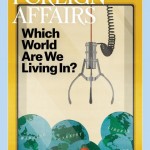In 1839, the French aristocrat Astolphe Louis Léonor, better known as the Marquis de Custine, traveled to Russia to understand “the empire of the Czar.” Competing with his compatriot Alexis de Tocqueville’s study of American democracy, Custine produced a travelogue that was also an analysis of “eternal Russia.” Russians excelled at submission, Custine believed. Dissidents were dispatched to Siberia, “that indispensable auxiliary of Muscovite civilization.” Despotism at home kindled the desire for empire abroad. “The idea of conquest,” Custine wrote, “forms the secret aspiration of Russia.”
More than anything, Custine was overwhelmed by the artificiality of imperial Russia. “The Russians have everything in name, and nothing in reality,” he wrote. He called its princes “false and crafty” and deemed the country “better served with spies than any other in the world.” A conservative, Custine began his trip as an advocate for a French- Russian alliance, a union of Christian autocrats. His trip changed his mind about which major power France should befriend: “Everything which tends to hasten the perfect agreement of French and German policy is beneficent.”
MICHAEL KIMMAGE is Professor of History at the Catholic University of America and the author of The Decline of the West: An American Story.
This article appeared in the Foreign Affairs 2018 July/August edition. It is republished here with permission.
This article was originally published by Foreign Affairs. You can read the rest of the article here.
You can read exclusive content from Gateway House: Indian Council on Global Relations, here.
Copyright © 2018 by the Council on Foreign Relations, Inc.


